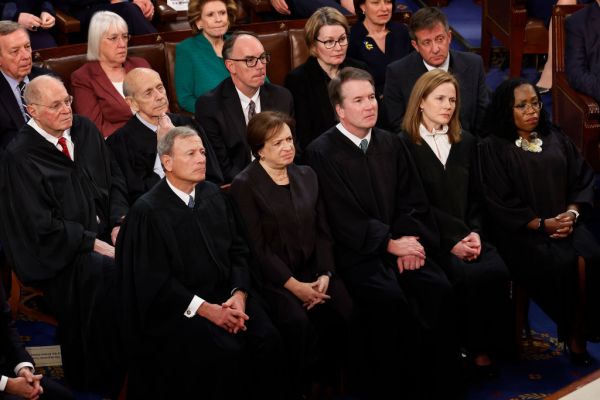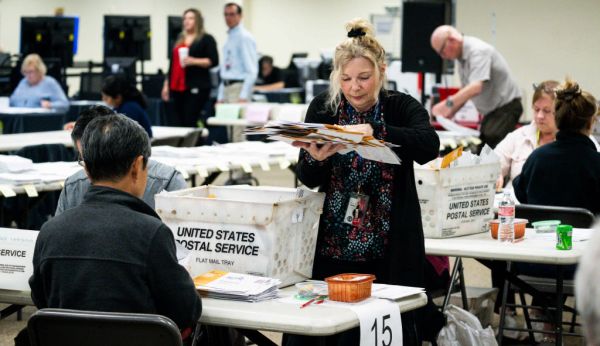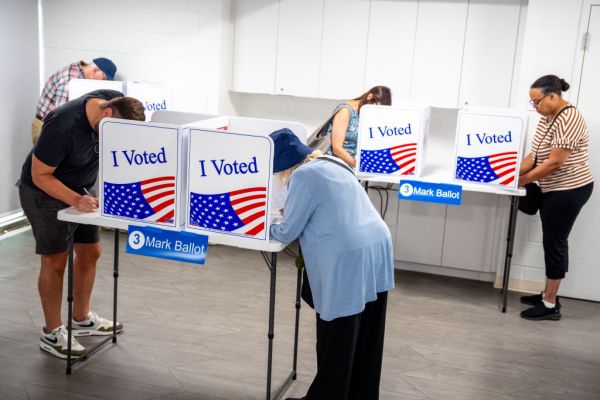A viral Threads post claims that Texas Gov. Greg Abbott recently purged 1.1 million from the state’s voter rolls. “TEXANS. Governor Greg Abbott removed 1.1 million people from the voting roll,” it says. “Check your status at VoteTexas.gov,”
The claim is factually true but missing important context. Texas has removed 1.1 million ineligible registrations from its voter rolls since 2021, but the removals are routine: Federal law requires states to periodically remove ineligible voters from their voting rolls.
In 2021, Texas Gov. Greg Abbott signed Senate Bill 1, an election integrity measure that included changes to state rules on mail-in and drive-through voting, voting hours, poll watcher protections, and citizenship checks. The legislation came amid a nationwide push for election security reform from state Republican parties following widespread—and unfounded—voter fraud allegations made during the 2020 presidential election.
The Texas bill reentered online conversation late last month after Abbott boasted that, since signing the bill in 2021, more than 1 million ineligible voters had been purged from Texas voter rolls. “Election integrity is essential to our democracy,” Abbott said in a press release. “I have signed the strongest election laws in the nation to protect the right to vote and to crackdown on illegal voting. These reforms have led to the removal of over one million ineligible people from our voter rolls in the last three years, including noncitizens, deceased voters, and people who moved to another state.”
While Abbott seemingly credits the state’s recent election laws for the removal of ineligible voters, periodic purges of voting rolls are not new and have been required by federal law for decades.
Section 8 of the 1993 National Voting Rights Act requires states to “conduct a general program that makes a reasonable effort to remove the names of ineligible voters from the official lists of eligible voters,” for reasons including “the death of the registrant” or “a change in residence of the registrant.”
In Texas, voters who have official mail—such as renewal certificates or jury summons—returned as undeliverable are added to a suspense list and sent a Notice of Address Confirmation. If the voter does not respond to the notice and does not vote in the proceeding two general elections, then their registration is subject to cancellation. Texas’ procedure for removing deceased voters occurs every month as death certificates are reported to county and state officials, and again each quarter when the secretary of state receives death records from the U.S. Social Security Administration.
According to an analysis of Texas voter registration cancellation data by the New York Times, the number of ineligible voters purged from Texas voter rolls since Abbott signed Senate Bill 1 has not differed substantially from those purged prior to the bill’s passage.
If you have a claim you would like to see us fact check, please send us an email at factcheck@thedispatch.com. If you would like to suggest a correction to this piece or any other Dispatch article, please email corrections@thedispatch.com.







Please note that we at The Dispatch hold ourselves, our work, and our commenters to a higher standard than other places on the internet. We welcome comments that foster genuine debate or discussion—including comments critical of us or our work—but responses that include ad hominem attacks on fellow Dispatch members or are intended to stoke fear and anger may be moderated.
With your membership, you only have the ability to comment on The Morning Dispatch articles. Consider upgrading to join the conversation everywhere.